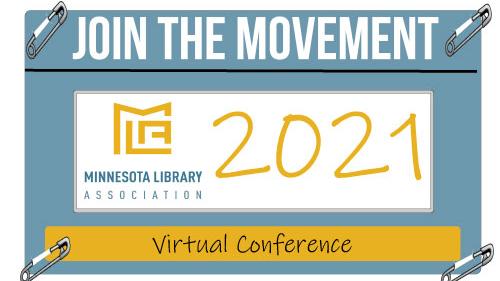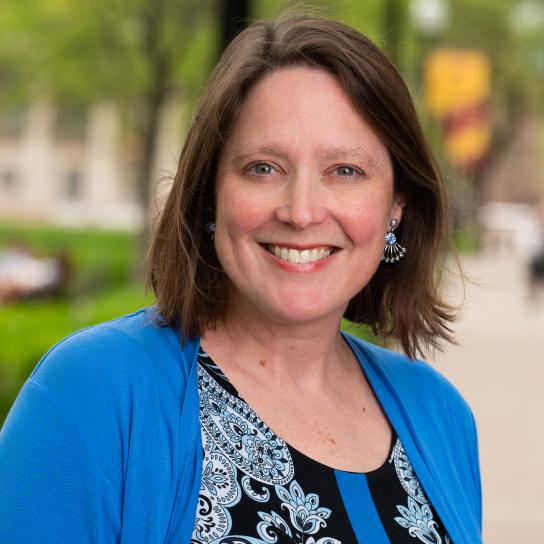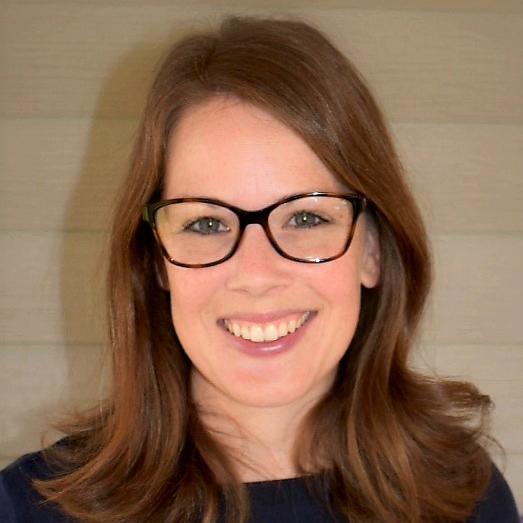Quick Summary
We attended some great sessions at the Minnesota Library Association's Annual Conference this year. Here are a few highlights from Stephanie Hess, Molly Huber, and Sara Ring.

We attended some great sessions at the Minnesota Library Association's Annual Conference this year. Here are a few highlights.
How to Be a More Inclusive Leader - and Yes, You are a Library Leader
Presented by Anthony Molaro (Association Professor, St. Catherine University) and Dr. Elizabeth Johnson (Library/Volunteer/Testing Coordinator, Minneapolis Public Schools)
The presenters introduced the concept of inclusive excellence, defined as when an institution has adopted cohesive, coherent, and collaborative integration of diversity and inclusion into the institutional pursuit of excellence. That means moving toward enacting diversity, equity, and inclusion (DEI) in intentional, systematic, and strategic ways, towards identifying and addressing DEI in all outcomes and moving towards engaging all stakeholders in your community. They shared a helpful resource you can use to rate your institution, the DEI Scorecard for Library and Information Organizations. Developed by the ALA Committee on Diversity, it is an evaluative tool designed to help administrators of information organizations assess their current practice in five core areas "to produce actionable data for decision making and enacting a robust and sustainable commitment to equity, diversity, inclusion, and justice.”
They also shared helpful information about what we, as individuals can do to be inclusive leaders ourselves. From the Harvard Business Review, here are 6 traits of an inclusive leader:
- Visible commitment
- Humility
- Awareness of bias
- Curiosity about others
- Cultural intelligence
- Effective collaboration
Using Fad Diets to Teach Information Evaluation
Presented by Annie Larson, Humanities Librarian, College of St. Benedict/Saint John’s University, Jonathan Carlson, Science Librarian, College of St. Benedict/Saint John’s University, and Laura Bauer, Visiting Assistant Professor in the Nutrition Department, College of St. Benedict/Saint John’s University
This session shared an interesting and valuable approach to teaching students information literacy and assessment of the comparative value of a source found online. Humanities Librarian Annie Larson partnered with Visiting Assistant Professor Laura Bauer to teach about nutrition and fad diets to non-science majors. As part of an introductory course, they encouraged students to research fad diets and evaluate the information they found about them online. As part of this, students were required to think about the reputability of the source; where did the information come from, was it confirmed elsewhere, and were those sources actually reliable? The instructors recommended use of the SIFT method for analysis. SIFT means Stop, Investigate the Source, FInd Trusted Coverage, and Trace to the Original or Stop, Find, Investigate, Trace. The assignment was such a success that Bauer and Larson expanded it and incorporated it into a course for nutrition majors, which is when Science Librarian Jonathan Carlson got involved. In this expanded assignment, they had students dig deeper, look more into scientific studies, and importantly, see if the study or its findings had been retracted. The more advanced students were disappointed to discover that the quality of information out there about fad diets is generally very poor and had little or no relation to actual nutrition-based science. The presenters are continuing to refine the assignment and plan to offer it again to College of St. Benedict/Saint John’s University students.
Pandemic, Racism, and Surveillance: Intellectual Freedom 2021
Presented by Chelsea Couillard-Smith, Senior Librarian, Hennepin County Library; Heather Biedermann, Head Librarian, South Central College; Kate Eidem, Legacy Grant Coordinator, Southeastern Library Cooperating; and Rachel Wexelbaum, Institutional Education Supervisor, St, Cloud Correctional Facility
In this session, the presenters highlighted their work in the context of the pandemic, issues of racism, and surveillance within libraries. Rachel Wexelbaum explained how she navigates providing library and educational materials to residents in a correctional facility when their liberty and their privacy have been removed. She argued that surveillance of library users is not just a prison problem, especially when our personal data, online interactions, and school behaviors are so exposed in this day and age. Chelsea Couillard-Smith explained the procedures and reasoning behind why publishers discontinue publishing books, which is actually more common than many realize. It’s only in recent years with the public’s focus on DEI and racism issues that these decisions have become more controversial, in particular the recent Dr. Seuss book controversy. She emphasized the importance of having official policies to build representational library collections for consistency, transparency, and public relations. Heather Beidermann spoke about surveillance in society in a broader sense, and how it can affect intellectual freedom. She provided a resource sheet on intellectual freedom projects and articles for further reading. The presenters only touched briefly on these significant topics, and many attendees wanted to know more!
Overall, we appreciated the words of keynote speaker Sofia Leung when she said, "It's all about stories - whose stories we tell, whose stories we keep, whose stories we uplift." We are inspired to keep doing the work of making these stories accessible to all.


